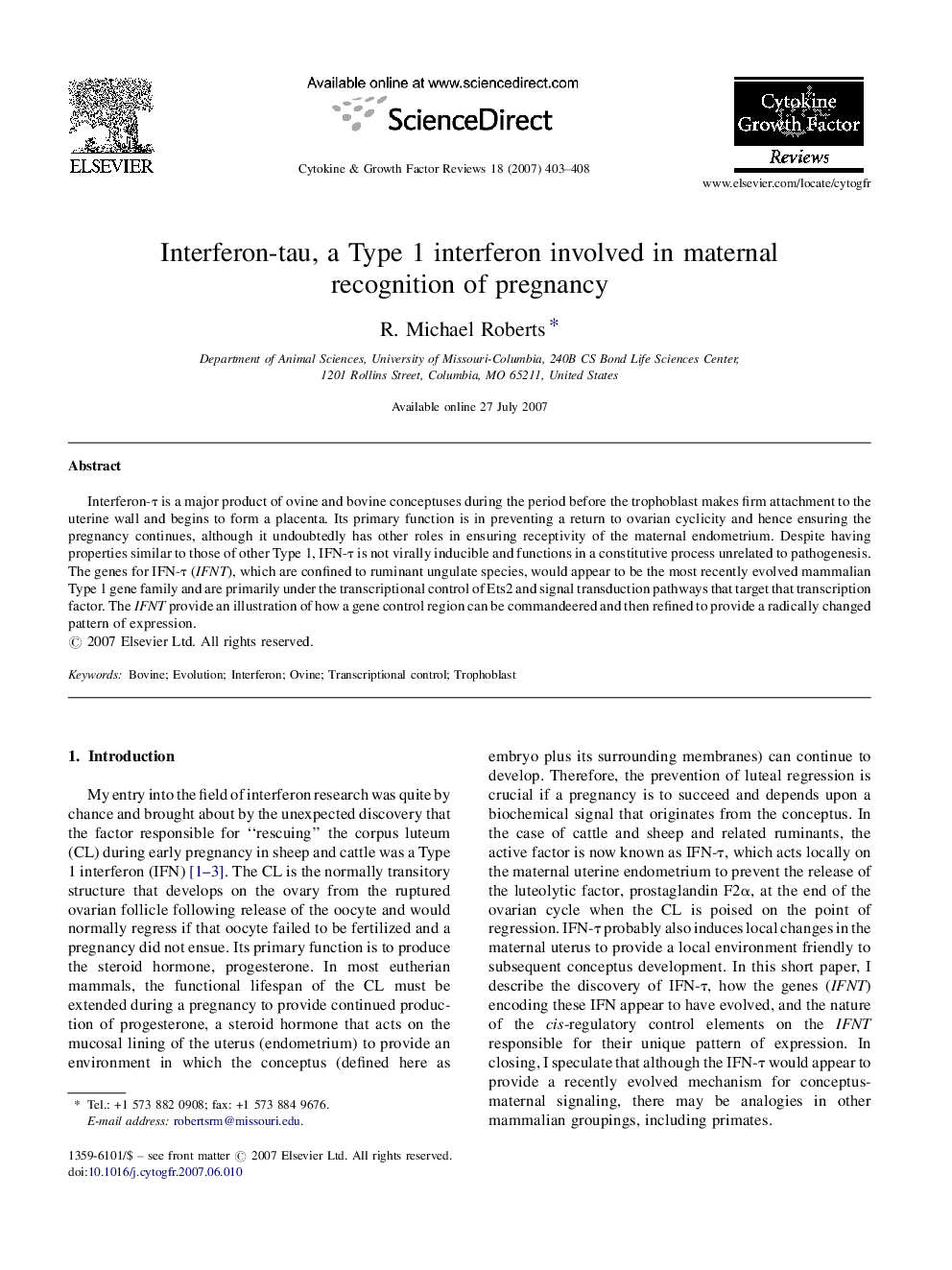| Article ID | Journal | Published Year | Pages | File Type |
|---|---|---|---|---|
| 2170948 | Cytokine & Growth Factor Reviews | 2007 | 6 Pages |
Abstract
Interferon-Ï is a major product of ovine and bovine conceptuses during the period before the trophoblast makes firm attachment to the uterine wall and begins to form a placenta. Its primary function is in preventing a return to ovarian cyclicity and hence ensuring the pregnancy continues, although it undoubtedly has other roles in ensuring receptivity of the maternal endometrium. Despite having properties similar to those of other Type 1, IFN-Ï is not virally inducible and functions in a constitutive process unrelated to pathogenesis. The genes for IFN-Ï (IFNT), which are confined to ruminant ungulate species, would appear to be the most recently evolved mammalian Type 1 gene family and are primarily under the transcriptional control of Ets2 and signal transduction pathways that target that transcription factor. The IFNT provide an illustration of how a gene control region can be commandeered and then refined to provide a radically changed pattern of expression.
Related Topics
Life Sciences
Biochemistry, Genetics and Molecular Biology
Cell Biology
Authors
R. Michael Roberts,
